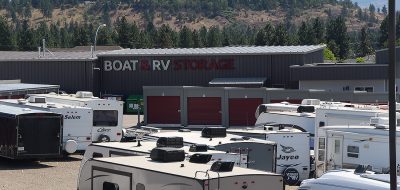For years, motor coaches, both class A and C’s, have relied primarily on propane for cooking, refrigeration, interior heat, hot water and through time, generator support. All electric coaches were introduced in the mid ‘90’s and were not a popular choice for some time. If fact, many people could not imagine who would ever opt for such a ridiculous setup. I remember one of Newmar‘s first attempts, the New Aire. It didn’t last long on the market as the take rate was not good. Among other things, the buying public probably wasn’t ready for a coach that came in all electric configuration only, with no choice.
Since then however, the market has changed. All electric coaches are becoming more and more popular. This option does come with a price and currently is only offered on the medium to higher priced diesel pushers. The price however has not been the only determining factor to offer it only on DP’s. Weight restrictions must be considered as additional batteries, larger inverters, larger refrigerators, and heavier robust diesel generators with auto start may be required.
To better understand why a buyer might choose the all electric option, let’s look at the pro’s and con’s.
Pro
- Single fuel type only required.
- Big residential refrigerator, generally about 23 cubic feet.
- Residential refrigerator reliability, features and auto defrost.
- Increased basement storage where propane tank would normally be.
- Added safety with the reduction of the need to carry propane.
Con
- Costs more money.
- May limit campground choices as generally require 50 amp service.
- Contributes to more vehicle weight.
- Requires the genset to run more often.
- Increased battery maintenance and possible need to switch to AGM‘s.
- Need to run genset to use the stove.
It would appear that the main attraction of the all electric coach is certainly the ability to have a residential refrigerator. I must say, after having the home like unit with its large interior and all the features we are used to in our own home, I would not want to go back. Absorption type refrigerators seem somewhat more primitive even though in fact they are substantially more expensive and have far more operating flexibility.
The drawbacks seem far more valid than the advantages, however many, including myself, have accepted them and still want the all electric.
Additionally, the need to monitor only one fuel level over time appeals to me. Propane measuring devices and gauges seem less than reliable, even though they probably are now fairly good.
So, what about boondocking? How do the all electric rigs make out when surviving without shore power for a few days or more? Well, of course it depends what ones needs are and how much battery power is available. These will ultimately affect the actual experience. In short, results will vary.
With full time refrigerator support and limited electrical use during the day, lighting, satellite and TV in the evening, my experience has shown the average all electric coach can survive on about 2.5 hours of generator time per day. This will result in the consumption of around 1.5 gallons of fuel or less. Now adjusting this to real world needs and results will show higher figures. Coffee, making breakfast and perhaps doing some cooking, stove or micro wave, during meal preparation will demand additional power, some in the form of generator operation. In general, I experienced the need to operate the genset twice a day, each time for about 2 to 2.5 hours. The frequency for this was first thing in the morning and again that night starting around dinner time. Fuel consumption could then be estimated at about 2 to 2.5 gallons per day or less. Of course in hot climates additional operation of the generator may be desired if air conditioning is required, but that is no different than a conventional propane equipped non-all electric coach.
Please keep in mind that the above figures can vary widely and be affected by, but not limited to, house battery bank size and condition, converter/inverter output, environment temperature, actual duration of loads usage, reasonable lighting needs and more. I have 8 – 6 volt AGM batteries each with 220 amp hour rating (20 hours). These series wired pairs connected parallel produce 880 amps at 12 volts. Allowing for a maximum discharge state equal to 50% yields a full 440 usable amps. In the above scenario I am not necessarily using the battery bank down as low as 50% at any time.
Does this make it the ideal boondocking coach? Absolutely not, but it can survive when needed, and do it in comfort. Additionally, some buyers of all electric coaches opt for a propane stove in place of the electric and feed it with a smaller than usual basement mounted tank.
Probably the biggest objection is the need for a full 50 amp service in camp. When I say full, I mean 50 amps at 240 volts AC, or 100 amps of 120 and many of the larger rigs can use that and more. When operating 3 A/C’s, a TV, a satellite receiver, the battery charger while doing some washing and making lunch, it’s not uncommon to exceed 100 amps, resulting usually in a blown breaker if connected to shore power. Many now are equipped with clothes dryers that operate only on 240 volts. This means they will only operate on a full 50 amp service or the generator.
So, what’s the verdict? Well I don’t think the jury is out on this one. It is really a matter of choice. The buyer’s lifestyle and primary use of the vehicle is probably the deciding factor. Though a high frequency of sales of higher end coaches are going all electric, for now, and probably for some time, the conventional propane equipped motor home will still be the most popular sold unit.
Note: The estimates and assumptions stated may vary greatly, but are there to help project what a typical application may yield.
Keeping You Plugged In – Lug_Nut – Peter Mercer





Twomed
Good job. Still getting used to our residential fridge (Monaco Dynasty) power usage. Dry camped at Brooksville FMCA for six days and and did fine, That’s about our longest ” boondock ” in our normal travel year. Would not trade the fridge for another rv one again. About the same gen un as what you outline above.
olstuf33
If you can afford one of the full electric coaches it probably is of little concern about the cost of fuel for the generator. These machines would not be considered for my boon docking uses. Entirely too heavy and not a great deal of road clearance. It would be interesting to know how many of these units are sold. I know Prevost sold a few some years ago but there seemed to be an high incidence of controls and switches failing. At least I was told by a couple of owners that was a problem. I couldn’t afford the brochure. 🙂
Michael
Great topic. I am currently converting a custom Gold Rush tag a along and made a decision to go electric. I’ll report back as I work through this challenge.
Lug_Nut
Craig, All electric coaches are heated with Aqua Hot or similar make diesel fired heaters, see http://hydro-hot.com/b2c/ecom/ecomEnduser/default/defaultNF.aspx These are circulation glycol type burner heaters that use a series of heater exchangers throughout the coach. These are also now used in most mid to higher end coaches regardless of propane availibility. They are a wonderful heating system and a great improvement over the propane fired furnace. I will actually be doing a blog in the future that will address these systems and their efficiency.
Craig
How does an all electric coach handle the interior heating? Do you have to run the generator whenever you need to warm-up the coach?
Lug_Nut
Alex, Very good point, but you can only cover so much ground and solar panels are really not a popular option and a subject all its own. In this blog I only wanted to broach the difference of an all electric and a conventional coach.
Alex
Maybe I missed something, but how can you discuss an all electric coach and not mention solar panels. If you had 1000 watts of solar panels tilted correctly on a sunny day, you could cut that generator time by… I’ll leave the math to those with more knowledge and experience.
Lug_Nut
Thank you, Joihn. Most of the research and knowledge within this blog are from experiences and ideas of people like yourself.
John McLaughlin
Right on Lug_Nut. I had an all electric coach and was not a happy camper. Actually mor my wife was not happy. The Newmar Essex was our choice for a new class A and one of the prerequisites for the new coach was that it have propane. It does!. BTW nicely written article.
jakeman97 & shirley